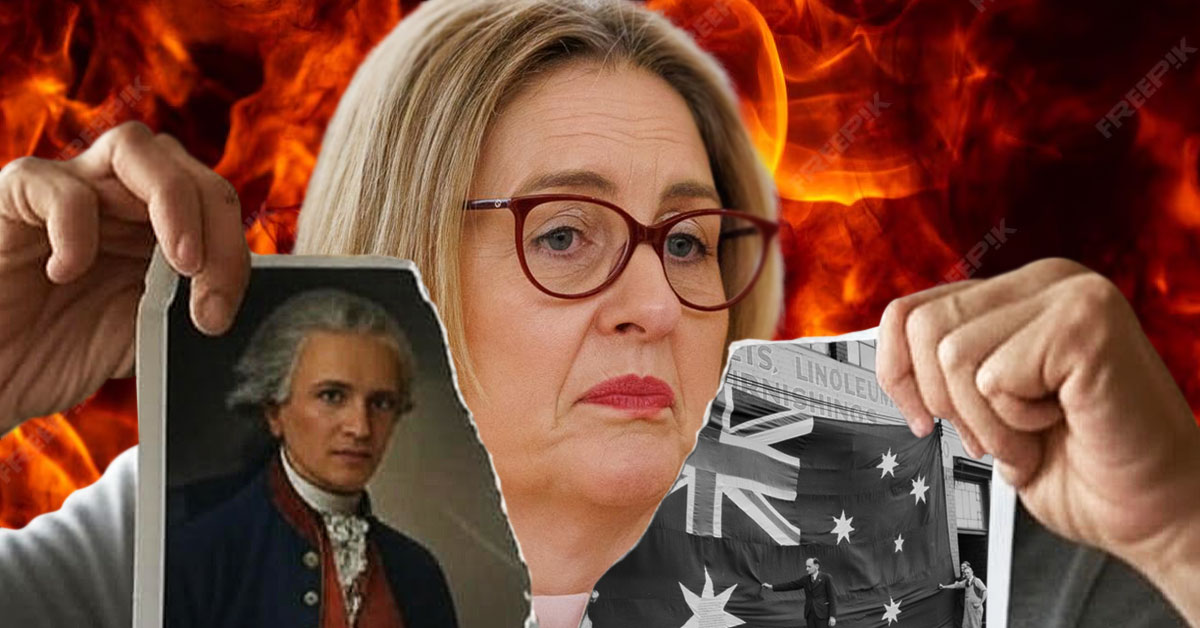Education
Victoria Unveils Controversial Indigenous Treaty Plan Amid Backlash

Victoria has announced a significant overhaul of its Indigenous policy through a Treaty agreement that introduces a powerful representative body and substantial changes to educational curricula. This move comes despite a majority of voters in the state opposing the Indigenous Voice to Parliament in the recent referendum. The agreement, described as “historic,” was revealed on Tuesday and formalizes commitments between the government led by Jacinta Allan and the First Peoples’ Assembly of Victoria.
At the heart of this agreement is the establishment of a new Indigenous council named Gellung Warl, which will be funded with over $70 million annually. This body will replace and expand the existing Assembly and consist of 33 elected Indigenous representatives. Its primary function will be to advise the government on Indigenous policy and programs, although final decision-making authority will remain with the government.
The Treaty also includes a series of initiatives that aim to integrate Indigenous perspectives across various sectors. A notable aspect is the introduction of “truth-telling” education, which will be incorporated into the curriculum for students from prep to Year 10. This education will focus on the lasting impacts of colonisation, dispossession, and injustice as highlighted by findings from the Yoorrook Justice Commission. Critics have raised alarms over this approach, arguing it formalizes what they describe as “racial power” within the state.
In addition to educational reforms, Gellung Warl will serve as the naming authority for geographical features under state control. This opens the possibility for renaming parks, rivers, and other landmarks, emphasizing Indigenous heritage and identity. The council will also oversee the First Peoples’ Infrastructure Fund and the Self Determination Fund, which are aimed at supporting Indigenous communities.
Further provisions allow Gellung Warl to negotiate individual treaties with Indigenous groups, potentially leading to reparations. In a joint statement, Jacinta Allan, Natalie Hutchins, the Minister for Treaty and First Peoples, and Assembly co-chairs Ngarra Murray and Rueben Berg stated, “A major milestone in Victoria’s decade-long Treaty process has been achieved… It acknowledges our past and is a chance for all Victorians to move forward together.”
The financial implications of the Treaty are significant, with $380 million already spent on negotiations. Projected costs are expected to exceed $586 million by 2029. The opposition Coalition has pledged to oppose the legislation, claiming the government is hastily advancing the Treaty through parliament without adequate scrutiny.
Despite these concerns, the agreement introduces mechanisms for increased accountability. The Independent Broad-based Anti-corruption Commission (IBAC) and the Ombudsman will oversee Gellung Warl, which will also be required to submit annual reports and financial statements.
As Victoria embarks on this new chapter of its governance regarding Indigenous affairs, the implications of the Treaty will likely resonate throughout the state, influencing public discourse and policy for years to come.
-

 Science2 months ago
Science2 months agoToyoake City Proposes Daily Two-Hour Smartphone Use Limit
-

 Health2 months ago
Health2 months agoB.C. Review Reveals Urgent Need for Rare-Disease Drug Reforms
-

 Top Stories2 months ago
Top Stories2 months agoPedestrian Fatally Injured in Esquimalt Collision on August 14
-

 Technology2 months ago
Technology2 months agoDark Adventure Game “Bye Sweet Carole” Set for October Release
-

 World2 months ago
World2 months agoJimmy Lai’s Defense Challenges Charges Under National Security Law
-

 Technology2 months ago
Technology2 months agoKonami Revives Iconic Metal Gear Solid Delta Ahead of Release
-

 Technology2 months ago
Technology2 months agoSnapmaker U1 Color 3D Printer Redefines Speed and Sustainability
-

 Technology2 months ago
Technology2 months agoAION Folding Knife: Redefining EDC Design with Premium Materials
-

 Technology2 months ago
Technology2 months agoSolve Today’s Wordle Challenge: Hints and Answer for August 19
-

 Business2 months ago
Business2 months agoGordon Murray Automotive Unveils S1 LM and Le Mans GTR at Monterey
-

 Lifestyle2 months ago
Lifestyle2 months agoVictoria’s Pop-Up Shop Shines Light on B.C.’s Wolf Cull
-

 Technology2 months ago
Technology2 months agoApple Expands Self-Service Repair Program to Canada









